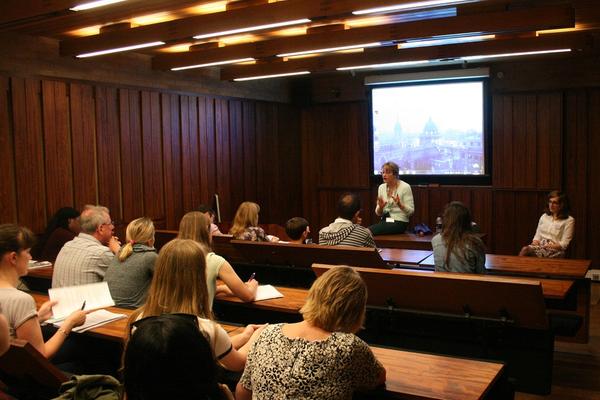Philip Wood
Spotlight on alumni

I read English literature at Oxford in the mid-sixties. My approach was that, since I was there to study English literature, I would do just that. In fact I would set out to do all of it, just to be safe. I had excellent tutors and I was entranced and enraptured. I would read everything I could from Beowulf to Heart of Darkness via The Faerie Queene and the Bard, all the way through to the moderns. My favourite poet after Chaucer and the Bard was Gerard Manley Hopkins. It was the anguish and intensity of his poetry which appalled and fascinated me. But at that stage in my life I didn’t know what Wordsworth was talking about when he referred to “something far more deeply interfused” when he was wandering around, glorying in the natural beauty of the Lake District. What was this thing that was far more deeply interfused?
Later I became a lawyer in the City of London. I initially did many deals in the early flowering of syndicated bank credits and international bond issues in the new financial markets of the 1970s. Most of these were enormous loans to sovereign borrowers and large corporations running to millions and sometimes billions. I must confess that at first I feared that Gerard Manley Hopkins was not going to help me much when I was drafting the documents from scratch in those days of invention. But the Augustan technique of crystal clarity was in my bones via Alexander Pope and Jane Austen. As a result, I did not adopt the grandiose motto then prevailing in the market –“Big deal = big words, big documents.” If clarity was good enough for the classics, it was good enough for international finance. When I was in charge of drafting our banking precedents, the clarity and accessibility of the legal language in these massive documents was a top priority – and the clients approved. We had to have literary skill.
I wrote a shortish book in 1980 on the law and practice of international finance. This had a glossy green cover and a title in jazzy italics. Readers told me that they liked it because I explained things simply (thank you, Andrew Marvell). That book flowed into further editions, the latest of which (in 2019) occupies eleven volumes and has over three million words, now encased in black with ceremonial gold script.
A curious and heretical technique had crept into my books. At that time and even more so now, law books are mainly footnotes, forcing out the text which retreats, cowering and whimpering to a tiny corner at the top of the page, while the numbers and the names and the knowing little asides of the learned author scream and rage as they clamber up the page.
My eleven volumes had no footnotes at all. All citation is in the text, so it is short. I was tempted to add footnote 1 on the last page of the last volume, stating “Thank God, that’s over.” But no, a principle is a principle.
Where did my anarchic rejection of the footnote come from? When I was reading Gerard Manley Hopkins, he got by without footnotes. So did the Bard and Chaucer and Conrad and George Eliot. I discovered that readers also did not like reading a book in two places at once. The rejection of the footnote was symbolic of a much wider embrace of a different style. I now had a literary brand which was marketable. That helps in a crowded arena if you are trying to be heard.
In the last few years, I headed a think-tank in my firm. We wrote papers, not legal documents. I didn’t have to stick to the pompous rhetoric of the measured legal style. I could use epic, ode, lyric, limerick, the rhythm of pub talk set against the resonance of passion, just in one sentence, following, say, TS Eliot. I could draw in the equivalent of Coleridge’s magical damsel with a dulcimer, or the dramatic speech in Measure for Measure about thrilling regions of thick-ribbed ice, anything, just so long as the prose sang a little.
So my study of English literature informed my entire career – as lawyer, as a lecturer, as a writer. When we communicate, we mainly use language. When we communicate well, we must use language well. That is one reason why we study the writers who did it best: the classics of English literature.
In lockdown, I, like many people, wrote a book for the sheer frolic of it, though not yet published. This book combines a variety of incompatible literary genres, eg an allegory, a meditation on philosophy, a trade book on GDP, population and science, a detective story, a Greek tragedy, a law book, a book about how we should live and the meaning of life, and, most alarmingly, a course on how to play piano tunes by colours.
It was an experiment to see if, like reading all English literature in one go, I could do all the literary genres in one book – by using the literary techniques I had learnt from the ancients in the mid-sixties. It was such fun to do. So English literature is not just for your job. It’s for your life and your happiness. Maybe then we can discover what in fact it is, this something that is far more deeply interfused.
Philip Wood CBE QC (hon) read English Language and Literature at Hertford College in the mid-sixties. For many years he was a partner in the City law firm Allen & Overy and latterly head of their Global Law Intelligence Unit. He has written more than 20 books and taught at many universities, including post-graduate courses at Oxford and Cambridge. He is presently a writer.






